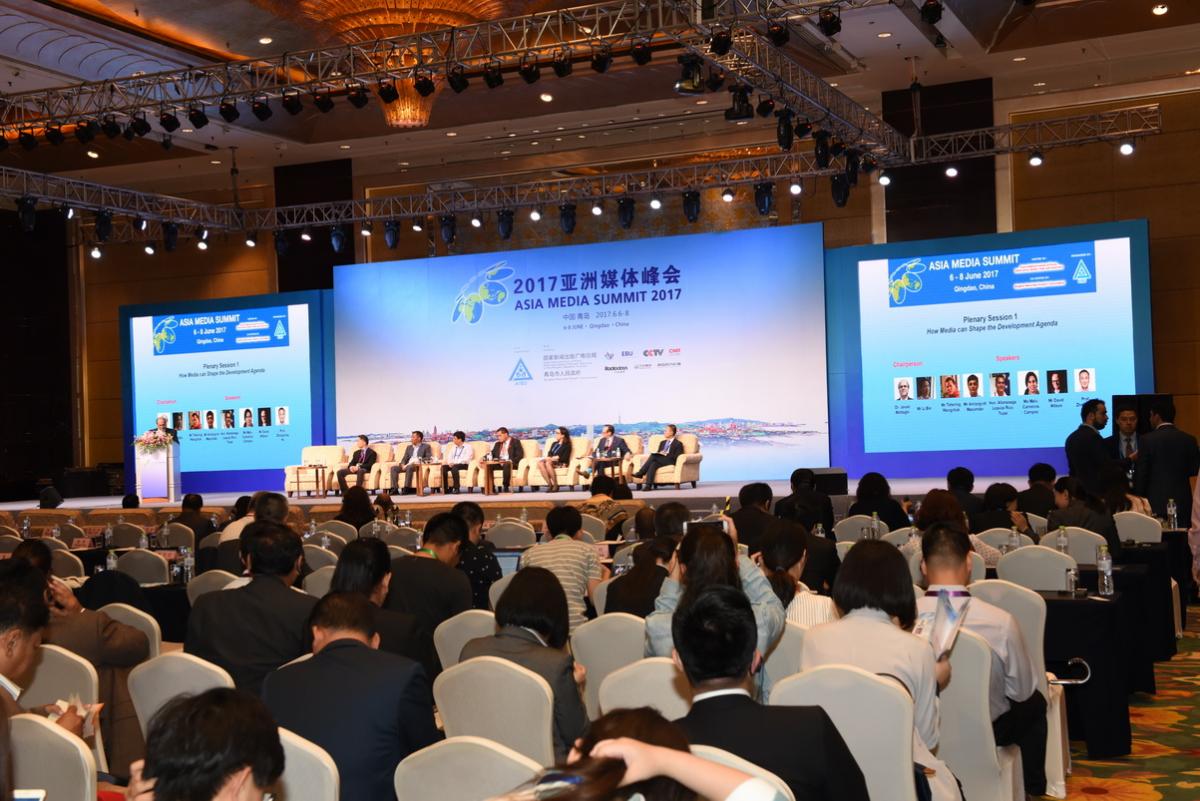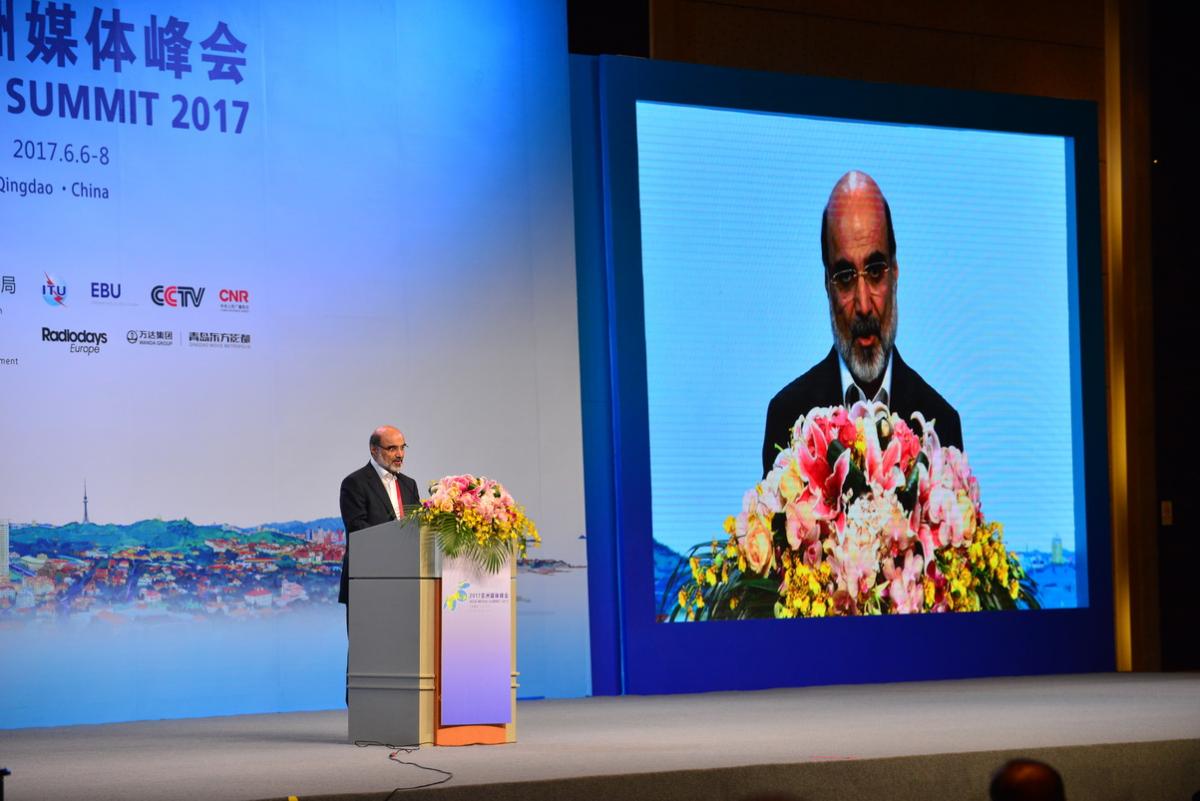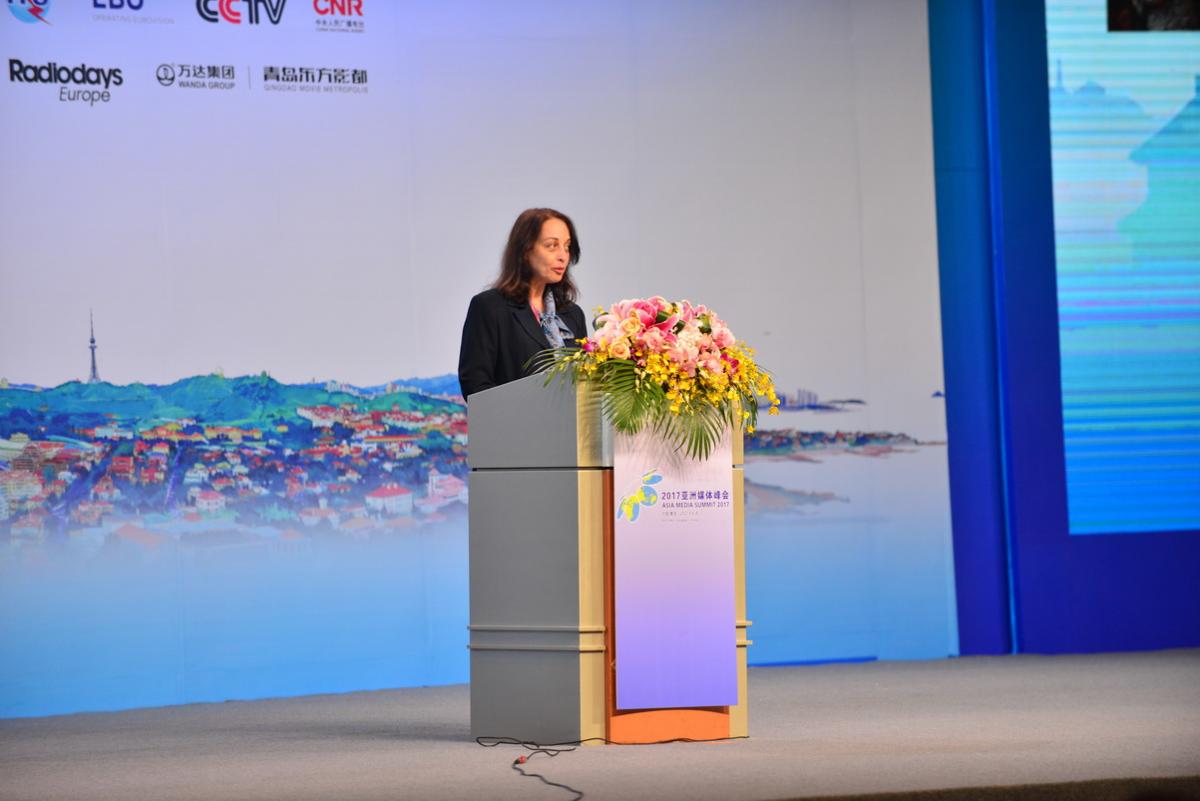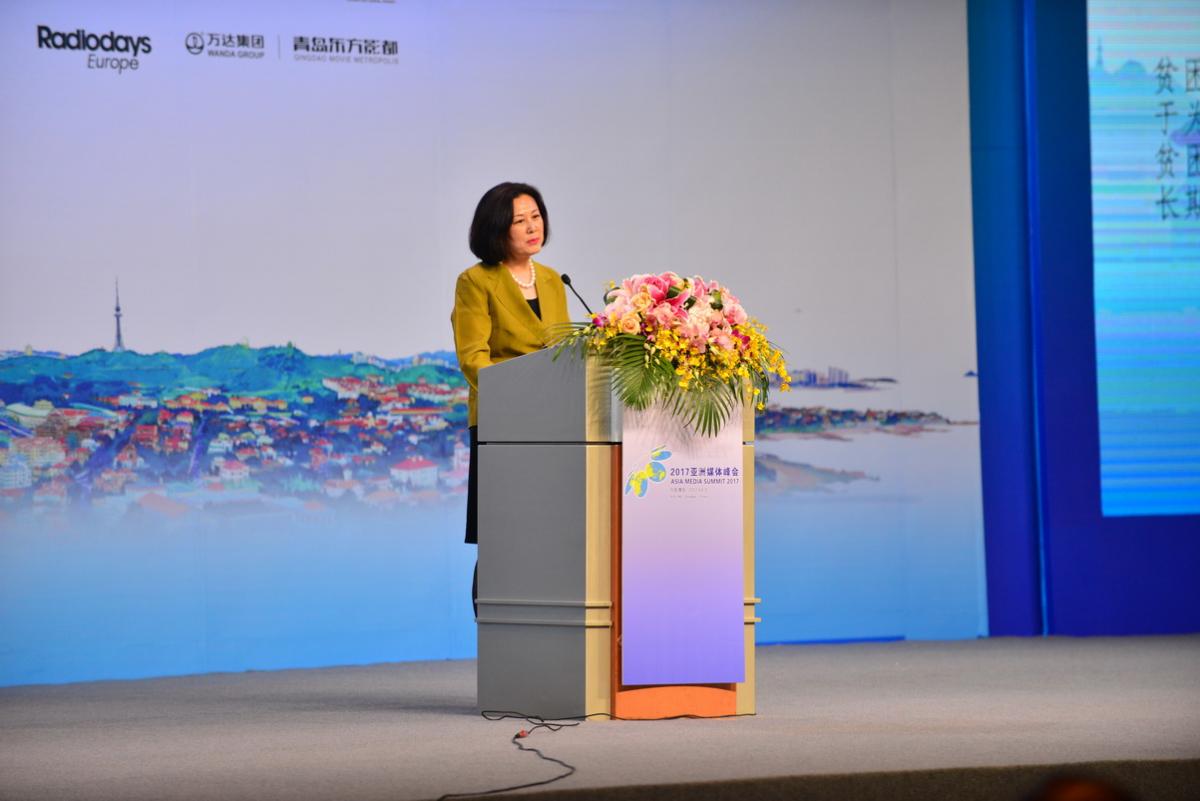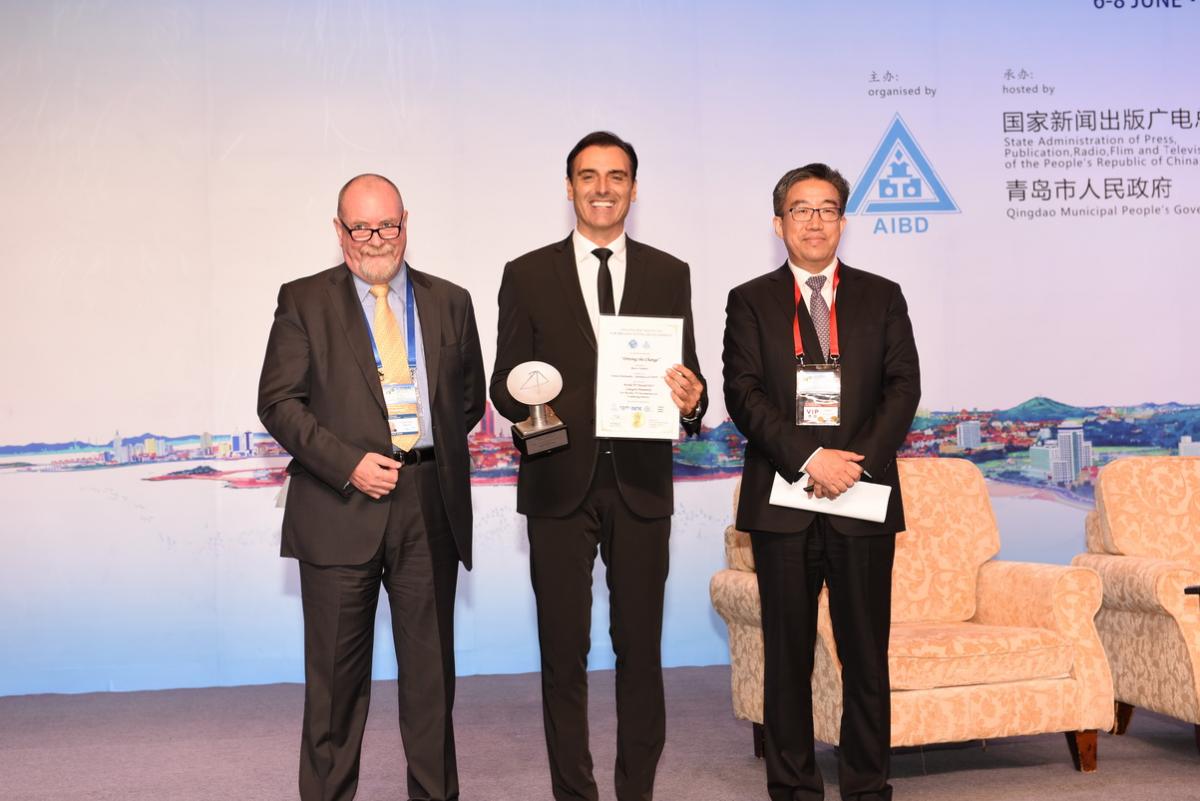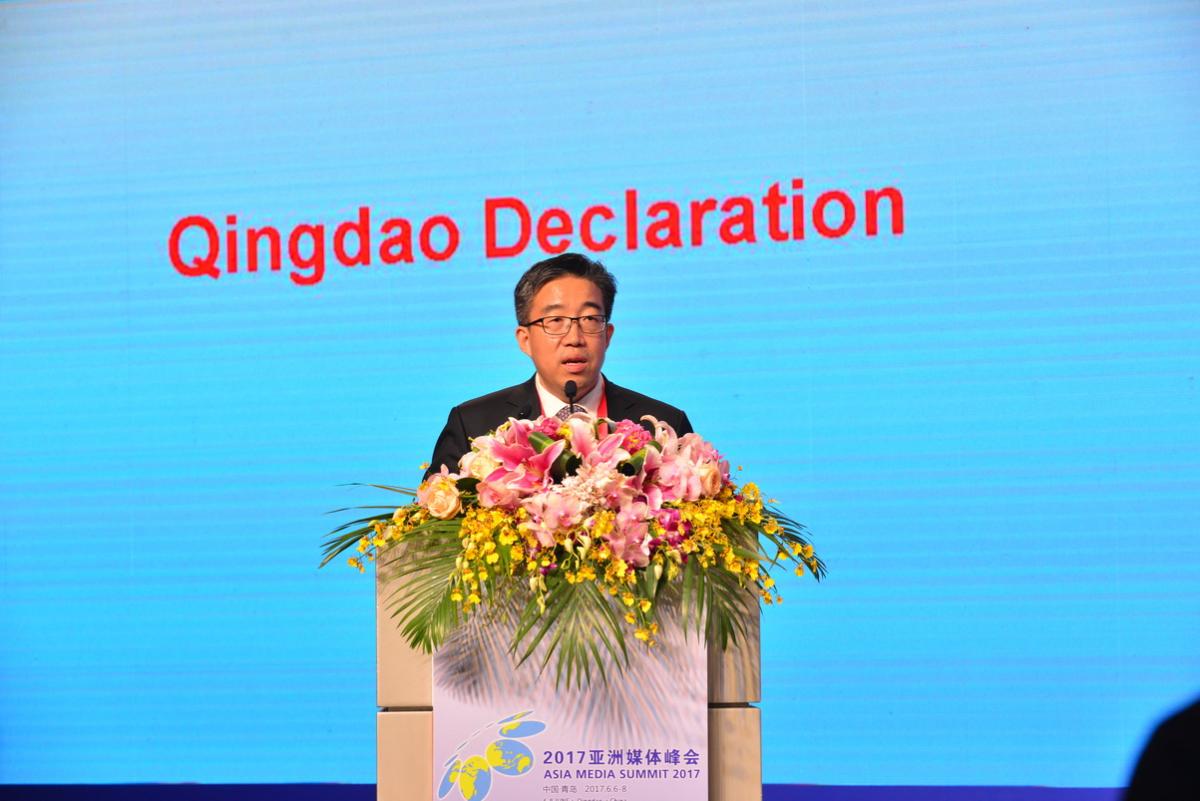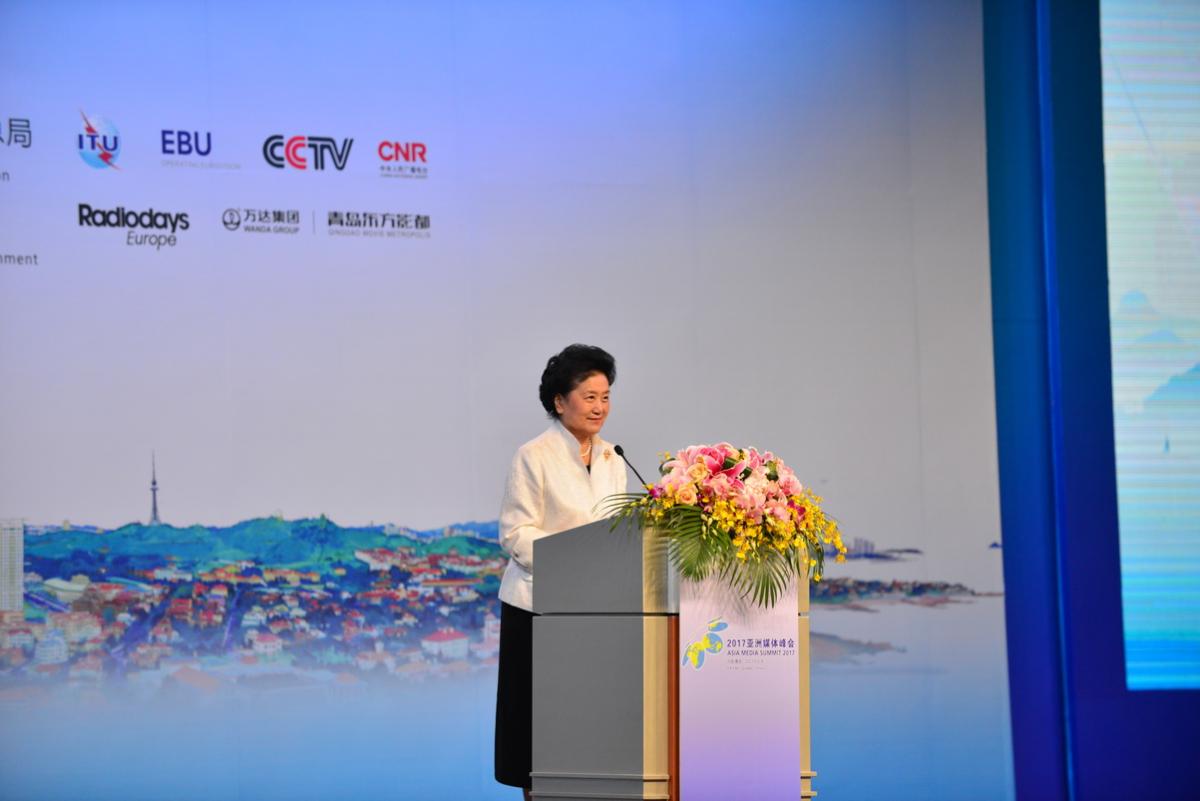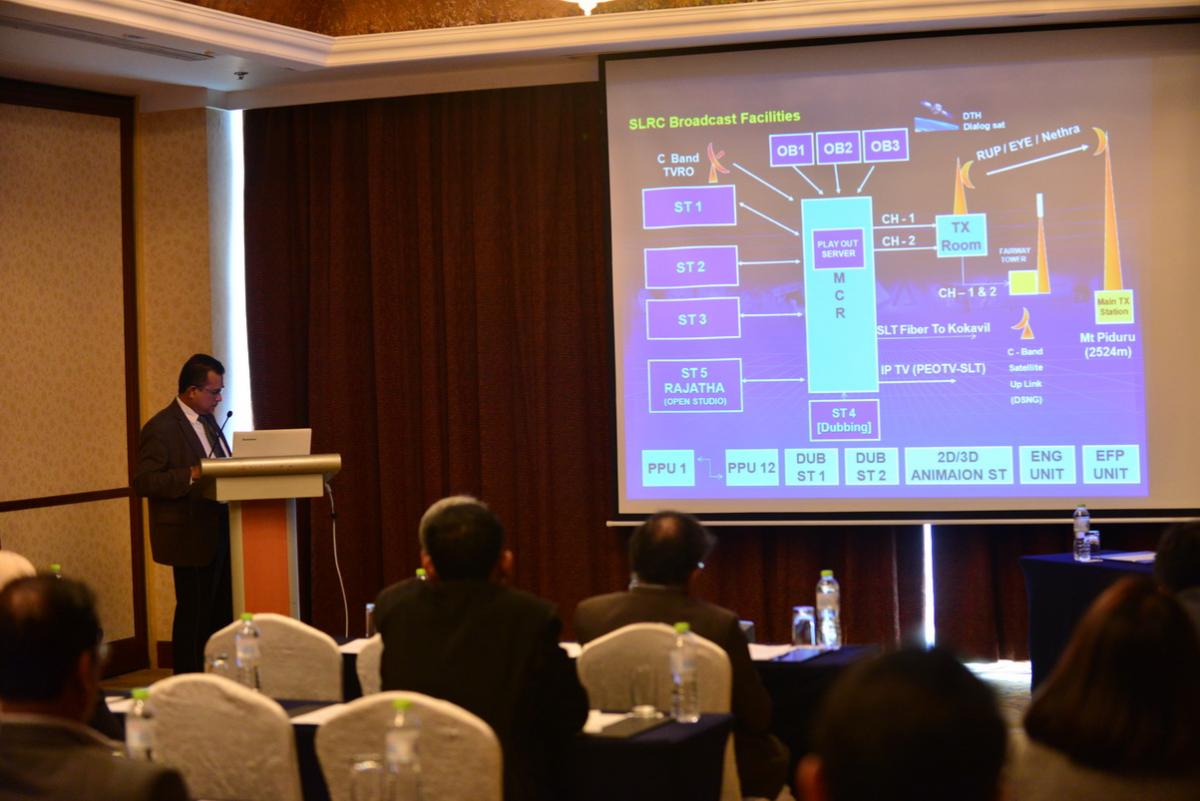To shape the development media, broadcasters in Asia offered diverse approaches from pursuing investigative pieces, expanding collaboration among media groups, to respecting local sensitivity to reach targeted communities.
Speaking at the Asia Media Summit, Mr Li Bin, Deputy Director of China Global Television Network, English Channel, China, said media must be true, accurate, comprehensive and balanced in reporting development issues.
To shape the development media, broadcasters in Asia offered diverse approaches from pursuing investigative pieces, expanding collaboration among media groups, to respecting local sensitivity to reach targeted communities.
Speaking at the Asia Media Summit, Mr Li Bin, Deputy Director of China Global Television Network, English Channel, China, said media must be true, accurate, comprehensive and balanced in reporting development issues.
“It should not only focus on giving information about currents affairs, it must also dig up the truth behind development issues and events,” Li said.
Media must do more investigative report, he told AMS participants attending plenary session 1 on “How can Media Shape the Development Agenda” held on 6 June 2017 in Qingdao, China.
Another speaker was Mr Tshering Wangchuk, Managing Director of Bhutan Broadcast Service Corporation Ltd., Bhutan, who said media cannot isolate itself in addressing the impact of development problems.
He cited BBS efforts to assist agencies in addressing social problems in the country, saying that due to limited resources, they cannot do more.
He urged better collaboration with development agencies and among themselves to deal with the 17 Sustainable Development Goals.
Mr Amlanjyoti Mazumdar, Director, External Services Division, All India Radio, India, highlighted the role of radio in helping solve developmental problems in the country. He cited how radio has made significant contribution in the areas of food self-sufficiency, health care and disease eradication.
To be effective, he said, All India Radio has to respect local sensitivity, ensuring they talk to community leaders and experts to explain development issues and reach out to targeted audiences.
Afamasaga Lepuia’i Rico Tupai, Minister of Communications and Information Technology, Samoa, said old and new media should assist small island nations in the Pacific that are affected adversely by climate change.
He said media should give voice to these small island nations affected by climate change. “Journalists should tell stories about culture and tradition that are receiving less media attention. They can help preserve these cultural traditions”, the Minister said.
He urged broadcasters to consider not only their commercial interest, but also their social responsibility to help these small island nations of more than 2 million people.
Professor Zhengrong Hu, President of the Communication University of China, meanwhile, said that for media to shape the development agenda, there is a need to enhance connectivity for the diffusion of information and innovation, promote public engagement on development issues, and participate in social construction.
Other speakers were Malu Carneiro Campos, President Television America Latina (TAL), Brazil, who talked about a project called ‘Big Cities’, a collaboration among broadcasters in 25 countries to address the quality of life of citizens, and David Wilson, Director, Bradford UNESCO City of Film, United Kingdom, who discussed using film through co-productions to promote sustainable development.
Shaping the Development Agenda
To shape the development media, broadcasters in Asia offered diverse approaches from pursuing investigative pieces, expanding collaboration among media groups, to respecting local sensitivity to reach targeted communities.
Speaking at the Asia Media Summit, Mr Li Bin, Deputy Director of China Global Television Network, English Channel, China, said media must be true, accurate, comprehensive and balanced in reporting development issues.
Media’s Huge Task in the Face of War & Terrorism
As the world faces the ominous phenomenon of war, insecurity and terrorism, media assumes a huge task of promoting peace, friendship, morality and spirituality.
It has the responsibility to “combat any act which seeks to create phobia towards religions.” It also has to “ceaselessly combat injustice as the root cause of terrorism” in different parts of the world, Dr Abdolali Ali Askari, President of AIBD General Conference, and President, Islamic Republic of Iran Broadcasting, said in his welcoming remarks during the opening ceremony of the 14th Asia Media Summit from 6-7 June 2017 in Qingdao, China.UN Calls on Media to Engage Audiences on Development Issues
The United Nations urges broadcasters in Asia Pacific to continue reporting on development issues, including the 17 Sustainable Development Goals (SDGs), while promoting pluralism and diversity of views.
In a message to the 14th Asia Media Summit participants, Amina J. Mohammed, Deputy Secretary General of the United Nations, stressed media’s critical role in engaging and inspiring people, connecting communities, as well as holding governments accountable.UN Calls on Media to Engage Audiences on Development Issues
The United Nations urges broadcasters in Asia Pacific to continue reporting on development issues, including the 17 Sustainable Development Goals (SDGs), while promoting pluralism and diversity of views.
In a message to the 14th Asia Media Summit participants, Amina J. Mohammed, Deputy Secretary General of the United Nations, stressed media’s critical role in engaging and inspiring people, connecting communities, as well as holding governments accountable.World TV Awards 2017 – Winners & Runners-Up Announcement
The winners and runners-up of the World TV Awards 2017 were announced on the 7 June during the Asia Media Summit which took place in Qingdao, China.
Qingdao Declaration on Media and the World’s Sustainable Development Qingdao, China, June 7, 2017
Preamble:
Mindful of the pressing challenges facing our world, among them, poverty, conflict, socioeconomic inequality, environmental degradation and climate change that call for urgent and concerted action to accelerate development and progress in our society;
Noting that there are several creative and innovative mechanisms to achieve sustainable development, appropriate to every country’s own needs, expectations and pace of development, and demanding participation and support from government, private sector, civil society, local communities, families and individuals alike;
Enhance Media Exchanges and Cooperation to boost Global Common Development Speech at the Opening Session of Asia Media Summit 2017 Qingdao, June 6, 2017
President Ali-Askari,
Director Chang Jin,
Distinguished Guests,
Ladies and Gentlemen,
Dear Friends,
Good morning!
In this lovely season of midsummer, flowers blooming like a piece of brocade. I’m delighted to come to the coastal city of Qingdao, with representatives from 48 countries and 7 international organizations, for the opening session of Asia Media Summit 2017. Let me begin by extending warm congratulations on the opening of the Summit. I’d like to convey sincere greetings and best wishes to all the distinguished guests coming from afar, as well as participants from the Film Capital Summit!
Press Release
The 14th Asia Media Summit (AMS), opened in Qingdao, China on the 6thof June, ended on the 8th of June. With the theme ‘Media on the Frontline of Global Development’, the Summit focused on the many important roles media play in promoting sustainable development besides presenting dialogues and debates on a series of hot topics. Most importantly the AMS passed the Qingdao Declaration on Media and the World’s Sustainable Development. Delegates to the Summit hailed it as a new starting point for efforts in promoting the world’s sustainable development, and further enhancing ties between media organisations in the Asia-Pacific region and those of the world.
China’s Vice Premier Madame Liu Yandong delivered the keynote address in the Inaugural Session, attended by more than 450 delegates including government leaders, executives and experts from media organisations in Asia-Pacific and the world. The summit also provided the platform for UN and UNESCO officials to deliver special messages from Deputy Secretary-General of UN Madame Amina J. Mohammed and Director-General of UNESCO Madame Irina Bokova.
Dealing with the Challenges of Digital Migration
The ITU Regional Office for Asia and the Pacific says costs, enormity of task, lack of government support and cooperation among stakeholders, and ever evolving technologies remain as some of the challenges in the migration from analogue to digital in the region.
“Not only does the setup of infrastructure for digital but also carrying out a simulcast service for a given period involve a lot of money and resources. On top of these the need to subsidise set- top-boxes to masses is an additional burden,” said Mr Wisit Atipayakoon, Programme Officer of the ITU Regional Office for Asia and the Pacific, Bangkok before participants at the AIBD/ITU/ABU regional workshop on “Digital Terrestrial Broadcasting TV and Radio Policy and Transition,” on 5 June 2017 in Qingdao, China.Enhancing Audiences Viewing Experience through Virtual Reality Technology
The use of virtual studio and virtual studio implantation technology is bringing a new visual experience for the TV audience, and providing new thinking and creative new tools for television producers.
They are applications of the virtual reality technology and are becoming a new trend in the broadcast industry in Asia Pacific, Mr Huang Lei, Product Manager, Jetsen Technology Co. Ltd, Beijing, said in his presentation at a pre-summit regional workshop on augmented reality on 4 June 2017 in Qingdao, China. The workshop is a partnership among AIBD, Jetsen Technology Co., Whaley, and Bang Productions.


